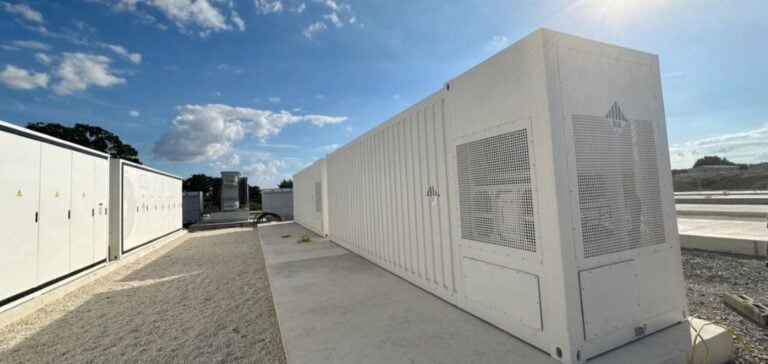Ireland and Northern Ireland are accelerating their energy transition with a significant increase in battery storage capacity within the Single Electricity Market (SEM). According to Cornwall Insight, short- and medium-term storage capacity, currently at 2.7 GWh, could reach 13.5 GWh by 2030. This increase would enable the discharge of up to 5 GW of energy at any given time, compared to the current 1 GW.
Energy storage, particularly with lithium-ion batteries with capacities of 0.5 to 4 hours, plays a crucial role in stabilizing electricity grids. It not only provides rapid response to demand but also reduces the loss of renewable energy caused by network limitations. This becomes increasingly critical with the growing integration of intermittent energy sources such as wind and solar.
A policy framework to accelerate storage
The release of a new electricity storage policy framework in Ireland last July has provided a boost to investors. This framework supports the development of battery projects, reinforcing the SEM’s energy ambitions. However, Northern Ireland has yet to adopt a similar strategy, although efforts in that direction are expected.
Challenges to meeting 2030 targets
Despite these advancements, challenges persist. Delays in planning and grid connections are hindering progress toward the goal of 80% renewable electricity by 2030. During the fourth auction of the Irish Renewable Electricity Support Scheme (RESS 4), technologies such as onshore wind showed significant delays compared to expectations. Cornwall Insight now predicts that the SEM will only meet its targets by 2033 unless swift policy reforms are implemented.
Lisa Foley, Principal Consultant at Cornwall Insight, emphasizes that while Ireland’s battery storage framework is promising, it won’t be sufficient to overcome delays in other areas. “Batteries are a key part of decarbonization, but progress must be accompanied by improvements in planning and policy to unlock the full potential of renewable energy.”
Striking a balance between storage and renewable energy
The energy transition in Ireland and Northern Ireland relies on close coordination between storage and renewable energy projects. If these regions can overcome current challenges, they could become benchmarks for energy transition in Europe.





















